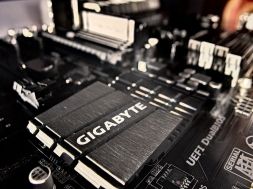Starlink, the internet service unit of SpaceX owned by U.S. billionaire Elon Musk, has started the local routing of its traffic in Nigeria, ahead of commercial launch of its broadband internet delivered via satellites.
Technology Times checks show that Starlink has plugged into the Internet Exchange Point of Nigeria (IXPN), a facility set up by the country to keep local internet traffic within the country, after the US tech company was licensed to offer broadband service delivered via the SpaceX satellites.
Starlink’s service is beaming into Nigeria’s telecoms market counting 218,953,849 (114.70%) active phone lines; 152,891,470 connections on regular internet service and 88,273,690 (46.24%) connections on broadband, as of November 2022, according to latest market updates by the Nigerian Communications Commission (NCC).
Starlink has been listed among new members of the IXPN ecosystem counting the leading mobile network operators in the country like MTN Nigeria, the local unit of South Africa’s MTN Group; Airtel Nigeria, owned by , Glo, NATCOM (Ntel), and has started exchanging local traffic through the peering point of MDX-I, the data centre owned by MainOne, owners of of the submarine cable that goes by the same name.

IXPN members counting local and international tech companies that include Google, Microsoft, Alibaba among others get benefits ranging from immediate drop in connectivity costs and cost savings in millions of dollars in offshore internet bandwidth payments to immediate drop in latency from 900 milliseconds to 30 milliseconds for local content, the company says.
Starlink: How IXPN routes local internet traffic
An Internet exchange point (IXP)” IXPN says, “is a physical infrastructure that allows several Internet Service Providers (ISPs) and network operators to exchange traffic between their networks, generally referred to as autonomous systems, by means of mutual peering agreements, which allow traffic to be exchanged at no cost.”
IXPN, which was chosen by the African Union (AU) as the Regional Internet Exchange Point (RIXP) for West African region, ensures that internet traffic among member nations are routed locally without need to go to foreign facilities and be transported back to the local internet community, saving expensive foreign exchange spendings, according to advocates.
“Beyond localising a single country-based local internet traffic,” IXPN says, “an African Regional Internet Exchange Point (RIXP) extends this further to localize local internet traffic within a designated African region.”
IXPN members counting local and international tech companies that include Google, Microsoft, Alibaba among others get benefits ranging from immediate drop in connectivity costs and cost savings in millions of dollars in offshore internet bandwidth payments to immediate drop in latency from 900 milliseconds to 30 milliseconds for local content, the company says.
The company says it improves security profile of Nigerian internet traffic by ensuring that only international traffic leaves Nigeria while ncreasing e-commerce activities that lead to a reduction in cash transactions.
The IXP facility also serves as the central point for connecting Higher Educational Institutions (HEIs) towards the development of National Research and Educational Network (NREN).
Starlink Internet Services Nigeria Ltd, the local unit of the US tech company, Space Exploration Technologies Corp otherwise known as SpaceX, has been issued three telecoms licences in Nigeria that include International Gateway (01/05/2022-30/04/2032); Internet Service Provider (01/05/2022-30/04/2027) and Sales & Installation – Major (01/05/2022-30/04/2027), according the records obtained by Technology Times from the NCC website.
Meanwhile, Starlink’s service which promises to deliver broadband service through satellite has come under growing interest after the company was issued licence indicating regulatory approval to launch service in the country by NCC.
Starlink, which has opened up a pre-order opportunity for prospective customers in Nigeria says that monthly subscription to its service will cost $43 monthly, while the hardware cost is $600 for the Starlink kit comprising the self-orienting Starlink, WiFi router, cables and base.
Starlink Internet Services Nigeria Ltd, the local unit of the US tech company, Space Exploration Technologies Corp otherwise known as SpaceX, has been issued three telecoms licences in Nigeria that include International Gateway (01/05/2022-30/04/2032); Internet Service Provider (01/05/2022-30/04/2027) and Sales & Installation – Major (01/05/2022-30/04/2027), according the records obtained by Technology Times from the NCC website.
The promises of Starlink’s broadband service delivered to internet users in Nigeria via low hanging satellites offers faster speed in cities and remote locations not reached by mobile and terrestrial services, while offering lower latency, the industry technical term for the distance covered by the user’s and their ISP.
Most satellite internet services come from single geostationary satellites that orbit the planet at 35,786 km, Starlink says “As a result, the round trip data time between the user and satellite—also known as latency—is high, making it nearly impossible to support streaming, online gaming, video calls or other high data rate activities.”
Starlink, the ISP says, “is a constellation of thousands of satellites that orbit the planet much closer to Earth, at about 550km, and cover the entire globe.”
IXPN: Lagos Members List
IXPN: Abuja Members List
IXPN: Port Harcourt Members List
IXPN: Kano Members List
Source of Article
